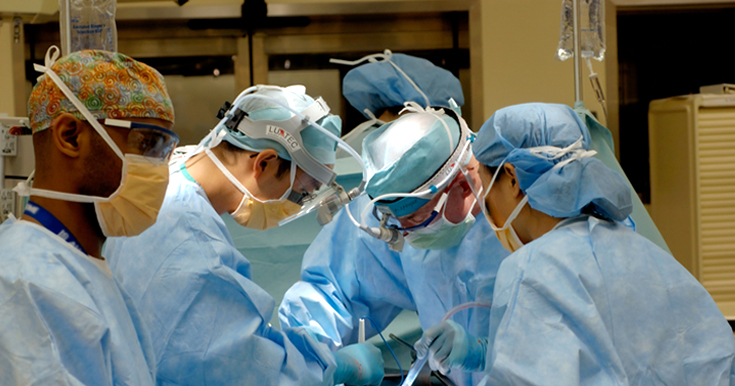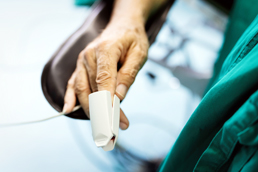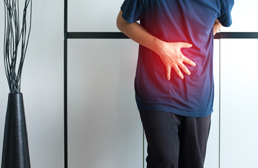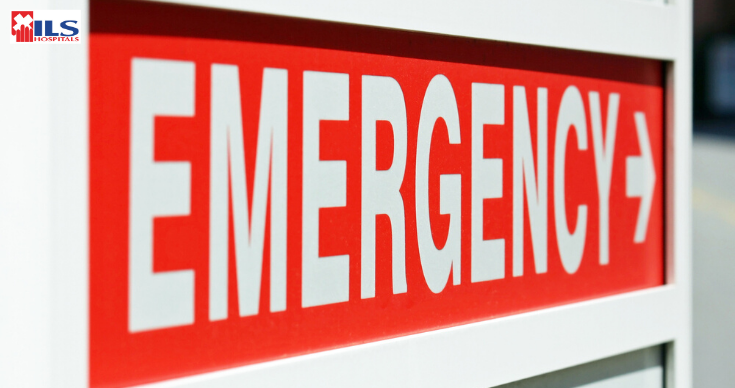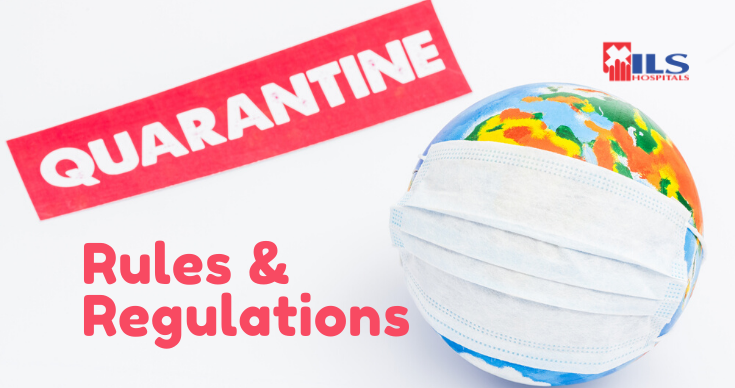Post-Cardiac Surgery Complications – What All Should Be Avoided After A Heart Surgery
Surgeries, of any nature, are complicated and require utmost care and precision. Especially, pre- and post-heart surgeries, everybody needs several weeks to heal itself. The post-care after surgery or ailment is equally valuable and should be a slow & progressive process. The gravity of post-cardiac surgery care must not be overlooked for faster recovery.
Cardiac surgery differs from general surgery, but general surgery hospitals might tell you about what to be avoided after heart surgery. Many general surgeons in Kolkata will guide you through post-cardiac surgery care.
Interventional cardiology is an advanced branch of cardiology that deals with non-invasive techniques to evaluate the functions of the heart and detect abnormalities. Some of the most common interventional cardiology procedures are as follows:
- Coronary catheterization
- Angioplasty and stenting
- Percutaneous Valve Repair
- Balloon Angioplasty
- Atherectomy
Keeping this in mind, we have compiled the complications and preventions of post-surgery conditions that will help you enjoy a healthy life.
Post-Cardiac Surgery Complications
Cardiac surgery is usually done if there is a blocked artery to the heart. As much as it is a matter of care before proceeding with the surgery, it is imperative to be vigilant after the surgery.
Following is the list of complications that might arise after the cardiac surgery-
1 – Chest Infection
After the surgery and anaesthesia, there is a possibility of chest infection in the patient. Depending on the severity, antibiotics and painkillers are used to subdue the infection.
2 – Heart Attack or Stroke
Generally, this may happen if you have a history of cardiac ailments and have undergone surgery. Post-surgery strokes can impact the recovery and will require extra care.
3 – Kidney Failure
In rare cases, the kidney stops functioning post-surgery. In most cases, kidney failure is temporary and is resolved by dialysis.
4 – Blood Clots
Post-surgery, blood clots may form in the body if the patient has a history of obesity, chain smoking, or immobility. Usually, the clots start from the legs and move to the lungs resulting in serious problems.
5 – Post-operative Bleeding
Cardiac surgery involves a lot of incisions and suturing. Sometimes, the bleeding continues after suturing, and fluctuations are observed in the blood pressure. Surgeons take necessary measures to normalize the condition of the patient.
6 – Other
Other complications include irregular heartbeat, chest pain, delirium, difficulty in breathing, insomnia, nausea, poor appetite, constipation, sore throat, and fatigue. But they go away with time.
Post-Surgery Care
1 – Incision Healing
Cardiac surgery includes a lot of incisions and suturing. Thus, post-surgery, avoid direct contact of water with the incision to mitigate any infection on the incision site.
2 – Stop Smoking
While recovering from heart surgery, it is crucial to keep smoking at bay to avoid further complications in the heart and lungs.
3 – Exercising
Any general surgeons in Kolkata will prescribe light exercise or climbing the stairs after cardiac surgery. But at the same time, faster recovery needs enough rest and sleep. Avoid over-exercising and over-sleeping.
4 – Mental Health
Post-surgery, the stress in mind means stress on the heart. Involve yourself in small activities and meditation to avoid stress, depression, anxiety, and anger while recovering. Living happily post-surgery expedites the recovery process.
5 – Eating Habits
Avoid eating oily and fried food. Eat healthy food or consult dieticians in the general surgery hospitals to enquire about post-surgery diet plans. Loss of appetite is common post-surgery but keeping a healthy diet plan balances your hunger.
At ILS Hospitals, we are well-equipped to administer pre-cardiac and post-cardiac surgery care. With the best surgeons’ team, we provide all the treatment and care needed to the patient after cardiac surgery.
Whether it be general surgery or Interventional cardiology like Angioplasty or Valvuloplasty, you need experienced and top cardiologists & surgeons. Even here, the post-surgery aftercare is imperative to recover to your daily routines. We at ILS Hospitals can assist you with clinical cardiology or even general surgery.
If you wish to know more about interventional and clinical cardiology, or other medical treatments in the hospitals, call ILS Care, +91 90514 60000 or visit https://www.ilshospitals.com/
Reasons Which Are Most Likely to Contribute to Urological Problems
Urological problems are pervasive in men and women of all ages today. Owing to our unhealthy lifestyle, these diseases could be short-lived or long term. Adults often ignore urological problems, but if these issues are not treated in time, one might have to face severe medical complications later.
The conditions do not occur automatically, and there is always some or other reason contributing to it. We usually do not pay attention to life events or habits that can potentially lead to urological issues. It’s high time we talk about them and take necessary notes to avoid them.
Ageing
With ageing comes a lot of bladder related problems due to the toughening of membranes. Urinary incontinence is one of the most prevalent issues in aged individuals. Furthermore, kidney stones and other chronic illnesses are also common. It is advised to visit urologists once you reach the age of 40.
Constipation
Constipation causes urinary tract infections in children and adults, which can further lead to urological disorders. If you suffer from constipation caused UTI’s, visit a urologist and bring necessary changes in your diet.
Blocked Urinary Tract
Obstruction in the urinary tract will lead to various urological problems concerning kidneys, urethra, uterus, bladder, etc. It will not only cause internal infections, but you might also witness the signs externally and through fluid discharge. Early detection and cure will save a person from complicated surgeries and stressful medication.
Diabetes
As diabetic people experience a severe grip of sphincter muscles and overactive bladder, the chances of occurrence of UTIs are high. Frequent urination may lead to infections. If you want to avoid urological complications, get diagnosed by a professional, and include the due medication.
Birth Defects
It is not mandatory that urinary tract related issue needs a stimulus to appear. In kids, these problems could be birth-related and can cause UTI’s at an early stage. Certain hospitals offer specialised services for such illnesses concerning children. Understandably, not all places are progressed enough to cater to all your needs and therefore, locate bigger cities near you for safe treatment. If you live in the northeastern part of India, try finding the best Urologist in Kolkata, as the city has some of the most advanced hospitals and offers a great set of choices for medical treatments.
Drinking Habits and Smoking
Alcohol increases the acidic character of urine. Also, the sugar content triggers the bacteria growth assisting in the development of UTIs. Similarly, smoking irritates the lining of the bladder and results in urinary incontinence. If you are a habitual drinker or smoker, the risk of urological problems is relatively high for you, and it’s time to consider your choices.
Physical Inactivity
Various researches have shown that prolonged sitting time and physical inactivity increase the risk of Lower Urinary Tract Symptoms (LUTS). This situation is more common in females aged between 40-60 years. Encompassing 30 mins of aerobic exercise or any other physical workout form will help you overcome the urological issues.
Urological problems pose daily challenges in the affected person’s routine and degrade the quality of life. If you have any of such issues underway, you can visit https://www.ilshospitals.com/ and find the best urology hospital in Kolkata. For similar aids in other cities, there are plenty of well-reputed hospitals that provide a wide range of medical services. Other than medicinal assistance, you might as well try replacing destructive habits with healthier options for a prosperous living.
How To Handle A Medical Emergency Effectively
A medical emergency is a serious condition that requires immediate medical supervision or else it can cause serious harm or injury to the affected person. Few examples of a medical emergency are burns, poisoning, injuries, bleeding, shock, strokes, severe allergic reactions and so on.
Not everyone knows what to do in case of a medical emergency, so ILS Hospitals, one of the best hospitals in Agartala and Kolkata will tell you how to handle a medical emergency effectively.
So without adding anything else, let’s continue further.
Stay Calm And Composed
Medical emergency is an alarming situation and can make people anxious. First and foremost thing to do during a medical emergency is to have a calm and composed demeanour until help arrives. Take deep breaths to calm your nerves and get relief from anxiety.
Call Medical Emergency Services At Once
Help takes time to arrive. So, whenever you notice someone in need of urgent medical supervision, call your local hospital for an ambulance without any delay.
Always Carry A First Aid Kit
First aid kit should be inside every home, school, college, office and any other organisations. You should even keep a small medical toolbox inside your car and backpack. Provide first aid to the patient to avoid any further damage.
Give CPR To The Patient
If the patient does not breathe despite a pulse then perform a CPR (Cardio-Pulmonary Resuscitation) or tell someone else to perform one if you do not know the CPR procedure. Ensure that the patient’s airway is not restricted by removing the patient’s tight clothing. Remember, it’s an emergency so you need to do things as required.
Always help people in need of medical emergencies whether you know them or not. For any medical emergency, you can visit ILS Hospitals, one of the best hospitals in Kolkata and Agartala.
Covid-19: Follow Rules And Regulations To Be Safe And Healthy
COVID-19 is a highly communicable disease, hence both the central and state government took the right initiative to flatten the curve – lockdown. The government is doing what it can during this medical emergency but we as a citizen of civil society must follow the rules and regulations dictated by the government for our and everyone else’s safety.
Today, ILS Hospitals, one of the best hospitals in Agartala and Kolkata will discuss the importance of following rules and regulations laid by the government. Firstly, we do not have a perfect cure for COVID-19, secondly, there’s a lot more undiscovered about this newly mutated virus, Coronavirus, and thirdly it is highly infectious and can infect many people through community transmission.
So, let’s know what rules we must follow to avoid getting infected with Coronavirus.
Practice Social Distancing
There’s a reason why the government opted for nationwide lockdown. Do not loiter outside and stay safe inside your home. If you go outside to shop for essentials, then maintain 6-feet distance from others. For home deliveries, make online payments and keep a tray outside your house so that you don’t come in direct contact with the delivery man.
Wear a mask and gloves
Do not step outside to make essential purchases or due to any medical emergency, without wearing a mask and preferably disposable gloves. We would recommend you to carry an alcohol-infused hand sanitizer in your bag or pocket.
Wash your hands
Do not forget to wash your hands properly as and when required.
Visit a healthcare facility if you develop flu symptoms
If you develop flu-like symptoms, then visit your nearest healthcare facility.
The lockdown is for your safety and not for restraining your freedom. ILS Hospitals, one of the best Hospitals in Kolkata and Agartala wishes you good health.
Watch Out For These 5 Health Hazards During Diwali
It is the time of the year when we all have the best excuse to have as many sweets we want because it is the festive season of Diwali. This festival brings joys and celebration, but sadly, it often brings several unwanted medical complications as well. Watch out for these health hazards that might come uninvited during this time.
1. Burn Injuries
The festival of lights is celebrated with candles, diyas, and firecrackers by the enthusiasts all over India. Moreover, cooking for hours and roaming around ritual fires also increase the chances of fire-related accidents. Needless to say, burn injuries are the most common accident that occurs during Diwali. Unless it is a minor, first-degree burn, it is always recommended to get it treated under a medical specialist.
Read more – A Guide To Types Of Burn And Its Treatment Approach
2. Blood Sugar Fluctuation
As Diwali involves binge eating on delicious treats and sweets, keeping blood sugar in check is quite challenging. In fact, many people hanging in the pre-diabetes zone become susceptible to diabetes during Diwali and seek diabetes treatment afterward. Though it is not exactly a medical emergency, it is crucial to keep count of the sugar intake as diabetes is tricky to resolve after it onsets.
3. Respiratory Discomfort
The level of air pollution increases profoundly due to fireworks during this period of time. This leads to severe respiratory discomfort, especially for children, expecting mothers and older people. People with any respiratory discomfort are particularly advised to practice caution against possible exposure to dense smoke and polluted air.
4. Ear Injury or Hearing Trauma
Firecrackers also produce an abundant amount of loud noise of high decibel. Often it gets corrected on its own, but exposure to the same from a close range can cause some severe damage such as temporary or permanent deafness. Just like the previous safe measure, ENT specialists advise people with a sensitive ear to practice caution to mitigate any severe injury or complications.
5. Cardiac Ailments
The eruption of sudden loud noise due to crackers causes alarm and uneasiness in people, especially, those who suffer from hypertension and other underlying cardiac discomforts. It also might induce sleep disturbance, restlessness, fidgetiness and impulsive behaviors among more susceptible people.
So, keep a note to avoid these health hazards amidst of enthusiast Diwali celebration. Always have a first aid kit within reach, but seek medical help, to rule out the chances of long-term consequences. Happy Diwali!
ILS Hospitals is open 24*7 even during this Diwali to offer you complete medical assistance if needed.
Bursting 5 Myths About Stroke Everyone Should Know About
Stroke is one of the leading causes of death all over the world. Stroke is a medical emergency that requires immediate medical attention. If that is availed on time, stoke can be managed effectively. However, many individuals fail to recognize its symptoms on time and as a result, precious moments go by. Today, we will segregate 5 most common myths from the facts. So, let’s check them all, one by one.
Myth – Stroke and heart attack are the same thing
Fact- This is the most common myth about the stroke and heart attack. They both are a medical emergency and caused by a blocked blood vessel, but their locations are completely different. The stroke happens in the brain, while the heart attack occurs in the heart, as the name clearly indicates.
Read more – The Difference between Heart Attack and Stroke
Myth – It is challenging to recognize a stroke
Fact- Thankfully, it is a myth. Stroke gives several prior indications for about 85 % of the time.
The acronym FAST should be followed. It stands for Face, Arm, Speech and Time. It is noted for facial drooping, weakening of arms/legs and speech difficulty in the suspected person and the time to call emergency service and reach qualified health provider.
Myth – Stroke is a disease for older people
Fact- The older people, more than 65 years, are clearly at a higher risk of the same. However, that does not mean younger people are protected from it. In fact, many younger people are being diagnosed with stroke these days from excessive built up stress, over a prolonged period of time. This myth makes many young people ignore the signs of the same and needless to say, it results in catastrophic consequences.
Myth – You can manage a stroke on your own
Fact- Absolutely not! Many times, the primary symptoms of a stroke go away after a while, making people believe it is resolved. However, it is just a warning sign and most likely to relapse shortly. Always remember stroke is a medical emergency that requires immediate treatment from an experienced medical team. It cannot be managed with anything else.
Myth – Strokes cannot be prevented
Fact- Thankfully, it is not factually correct. The adequate measure can keep a stroke at bay. This includes managing stress, following a healthy diet, keeping blood pressure, cholesterol, diabetes, etc. in check, and seeking medical help for any related discomfort on time.
Stay aware of the warning signs of an imminent stroke and reach your nearest quality caregiver. At ILS Hospitals, we provide 24*7 critical care for every medical emergency, including stroke. Take down the emergency helpline for the hour of need,
EMERGENCY HELPLINE
Agartala: 8974050300, 0381-2415000
Dumdum: 033-40315000
Salt Lake: 033-40206500
5 Festive Season Related Health Hazards and Possible Emergencies to Watch Out For This Durga Puja
This time of the year evokes a different spirit altogether, isn’t it? After all Durga Puja has its own significance in the heart and spirit of every Bengali and other people belonging to Bengal. Though it is celebrated in several parts of the world, its essence and aura is unmatchable in this particular region. Needless to say, visiting hospitals in between this festive time, is never in one’s wish list, but every year, many people make these unexpected visits to address their health issues.
Here we present several festival-related health hazards and emergency that might need you to seek medical help during this Durga Puja.
1. Food Poisoning

Eating out with friends during pandal hopping is enjoyed by every youth. This binge eating can eventually end up causing food poisoning and other digestion discomforts. Seek Gastroenterologist if the problems persist.
2. Respiratory Difficulty

While participating in traditional rituals during puja, Dhunuchi dance or cooking and organizing Puja foods preparations for hours, it is not uncommon to encounter breathing discomfort. Seek respiratory & Chest Medicine if difficulty persists. In fact, people with a history of asthma and other respiratory issues should keep a distance from such activities, to be on the safe side.
3. Accidental Injuries to Children

Pandal hopping with family has its own fun and consequences. Having infants and toddlers along can often cause mild to severe injuries to the little ones. First-aid can be done at the nearest medical clinic or by a skilled family member, but a consultation from a pediatrician or neonatologist is advised to rule out the possibility of long-term complications.
4. Accidents and Trauma to Adults

While clicking selfies, in crowded pandals or during Bisarjan, might be a common practice for many skilled youths, but accidents can happen anytime if one becomes unmindful. Unless it is mild cut, bruise, or scrapes, it is best to address the trauma from a skilled orthopedics and emergency unit.
5. Headache and Acoustic Trauma

Loud music and people chattering cannot be mitigated in the puja festival and in fact, is enjoyed by most. However, it might cause minor to mild trauma for sensitive individuals, particularly the elders, kids and recovering patients. Seeking help from ENT specialist is advised for experiencing severe discomfort.
In case, you or your loved ones fall in traps to any of the above-mentioned health complications, rush to your nearest ILS Hospital and seek medical care. We are open 24/7 for your treatment and care. Jot down the numbers in case any medical emergency strikes.
Dumdum: 033-40315000
Salt Lake: 033-40206500
Enjoy the festive season to its fullest. Happy Durga Puja
A Guide To Types Of Burn And Its Treatment Approach
Burn is one of the common types of injuries in both household and workplace. Burn is the extent of the injury, the skin bears due to the incident. On one hand, a mild skin burn can be effectively treated at home, severe burn injuries are classified as a medical emergency and the patient should be taken to the nearest hospital with adequate measures to handle the situation. Here we present the types of burn along with their treatment approaches.

There are 4 basic types of burn, namely the 1st, 2nd, 3rd, and 4th-degree burn. As the name indicates, the 1st-degree burn is the least causing injury and 4th-degree is the most severe one. Except for 1st-degree burn rest, all are always a medical emergency. The 1st-degree burn, too, is recommended to seek a doctor’s opinion, if required.
First-degree burns – This is often called the ‘superficial’ burns as it causes damage to only the external skin layer. It is characterized by redness, swelling, inflammation, pain in the local areas. As it cures, the uppermost skin peels off. It usually takes about a week to 10 days to heal with a home remedy by using cold water, aloe vera gel, and some over-the-counter ointments. It requires medical attention only if the affected area is more than 3-5 inches, or if it is in a sensitive area such as spine, shoulder, knee, foot, elbow etc.
Second-degree burn – The second-degree burn causes damage beyond the top skin layers. It leads to skin blisters along with being red and sore and often pops open to release wet, thick tissue. Being moist in nature, these wounds require proper medical attention. It usually takes about 3 to 6 weeks to heal and often leaves scarring as well. In case the affected site is sensitive, such as the face, groin, hands, feet etc. A minor procedure of skin grafting might be needed as well for a complete recovery.
Third-degree burns – This results in severe damage to every layer of the skin. Even though logically, it seems that a third-degree burn must be severely painful, in reality, one might not feel pain at all. It happens in case the burn penetrates through the nerves as well. It gives rise to waxy, leathery textured skin in white to dark brown color. It requires immediate medical attention and there is no certain timeline for healing either. The treatment procedure mostly includes surgeries as well.
Fourth-degree burn – A more severe burn than a third degree is called the fourth-degree burn which has all the symptoms of the previous degree but the damage extends to the bones. It is extremely challenging to treat it and has no certain timeline or assurance on the extent of recovery.
Unless the burn is due to some minor oil spattering or mild sunburn, it is always recommended to treat it as a medical emergency to ensure it doesn’t have any long-term complications associated with it.
An Insight of Surgeries Carried Out in ILS Hospitals
In this era, we have advanced technology for most of the things around us. However, even the best medication cannot resolve every illness. Thankfully, we have surgical treatment to address, resolve and cure such illnesses. With the help of the state-of-the-art technology such as the laparoscopic surgery, the remedy is now most effective than ever. Today, we bring insights of surgeries that we carry out in the ILS Hospitals.
At ILS Hospitals, at least 50 percent of the operations we carry out are related to the gastrointestinal tract. Most of our patient had a history of chronic indigestion, constipation and another digestive issue for a significant period of time. Indeed, the occurrence of digestive complication is on a constant rise since the introduction and commercialization of the fast food industry. It is often associated along with general surgery, which involves invasive correction of soft tissue and solid organs.

The figure is shortly followed by gynaecologic and obstetrician surgeries. Apart from childbirth surgical procedure, women also seek a surgical cure and care for family planning, and other gynaecological conditions. We also provide treatment and care for women suffering miscarriage or carrying risk pregnancy.
We handle and address significant numbers of orthopaedic surgeries throughout the year. It includes both prescheduled procedures such as total and partial knee replacement, hip joint, etc and emergency procedures such as accidental injury or trauma. Our 24/7 ambulance and ICU contributes a lot towards saving these lives.
As compared to other multispecialty hospitals, we have significant numbers of ENT, dental and eye surgery in our hospitals. In fact, we had carried out a cochlear implant in ILS Agartala unit, one of the rare and leading surgeries carried out in northeast India.

Cardiac surgery is on a constant rise, not only in ILS Hospitals but at hospitals in every corner of the world. However, we specialize in handling both preschedules heart surgeries and emergency cardiac surgeries. Our patients receive enormous support and care from the expert doctors.
Apart from these, we handle an enormous amount of species in miscellaneous specialties. At ILS Hospitals, we also have several patients seeking a surgical cure for their various urological conditions. We have many patients who chose us for offering laparoscopic surgery for the same. We, at ILS Hospitals, being the pioneer of laparoscopic surgery, offer mostly keyhole operation to our patients. Needless to say, our skilled nurses and staffs stay on guard, round the clock. In case, you or your loved ones need any consultation or surgery, book an appointment with us and secure your health.











